Learn skills + share them: how to take action in times of uncertainty
I’ve always been fascinated by skills. Particularly hands-on ones. I’m in awe of people who have skills that I do not – like the shoe man (not a sexist gender assign – the two brothers who run the shoe repair place at my local shopping centre call their business ‘The Shoe Man’), or people who know how to sew, or make things with wood or clay, can fix things, or weave, or, or…
The more turmoil there is in the world, the more I’m drawn to learning skills. Knowing how to do things, even simply understanding how things work, gives me a sense of control (and comfort) in times of uncertainty.
I’m not trying to be completely self-sufficient – in fact, I don’t believe that’s a thing. I know that us humans need each other way more than we’d like to admit. No-one can excel at all the things. Having skills is not about self-sufficiency but self-reliance and community resilience: we need to share the skills we have with others and look after one another.
One of the best things about my zero waste journey has been learning new skills. There are still so many I’d like to tackle (weaving! basket making! grafting!) but I’ve definitely added a few to the toolbox over the years.
I’m grateful that I’ve had the opportunity, and comforted that I can draw on them now.
I wanted to share the skills I have not to blow my own trumpet (I can’t play the trumpet! Not a skill I have!) but to get you thinking about the skills you have, and the skills you want to have.
And then, I want to persuade you to share them (but we’ll get to that at the end).
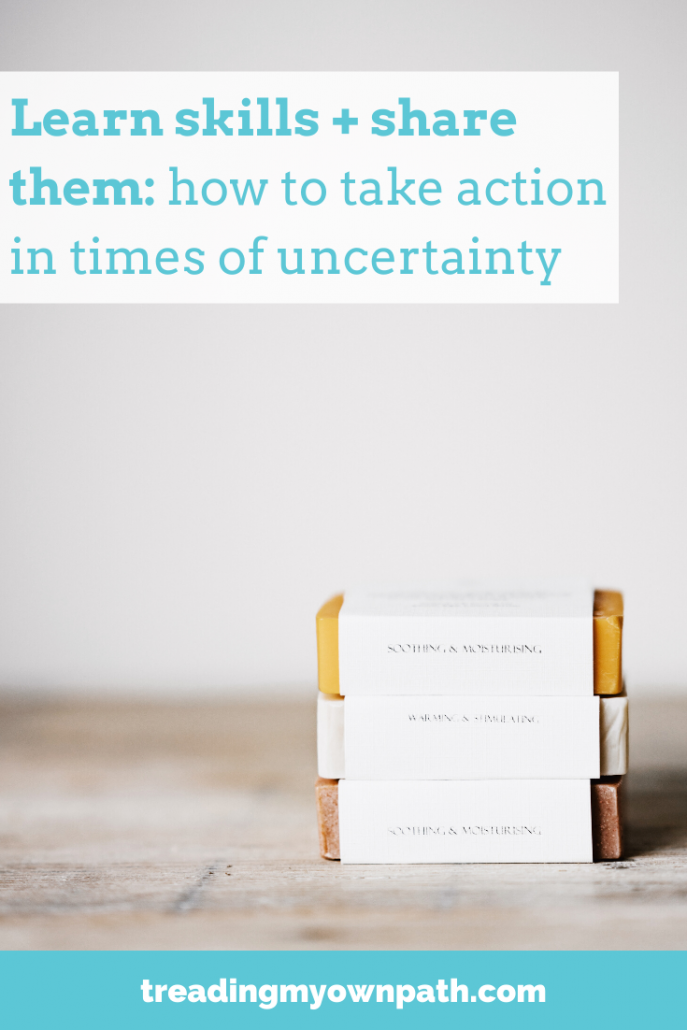
Soap making
This is one of my newer skills (not shared on the blog yet as I’m still at the learning stage) but it’s what inspired me to write this post. With the coronavirus pandemic, a few things have been consistently selling out at the stores – tinned tomatoes, rice, pasta, toilet paper… and soap.
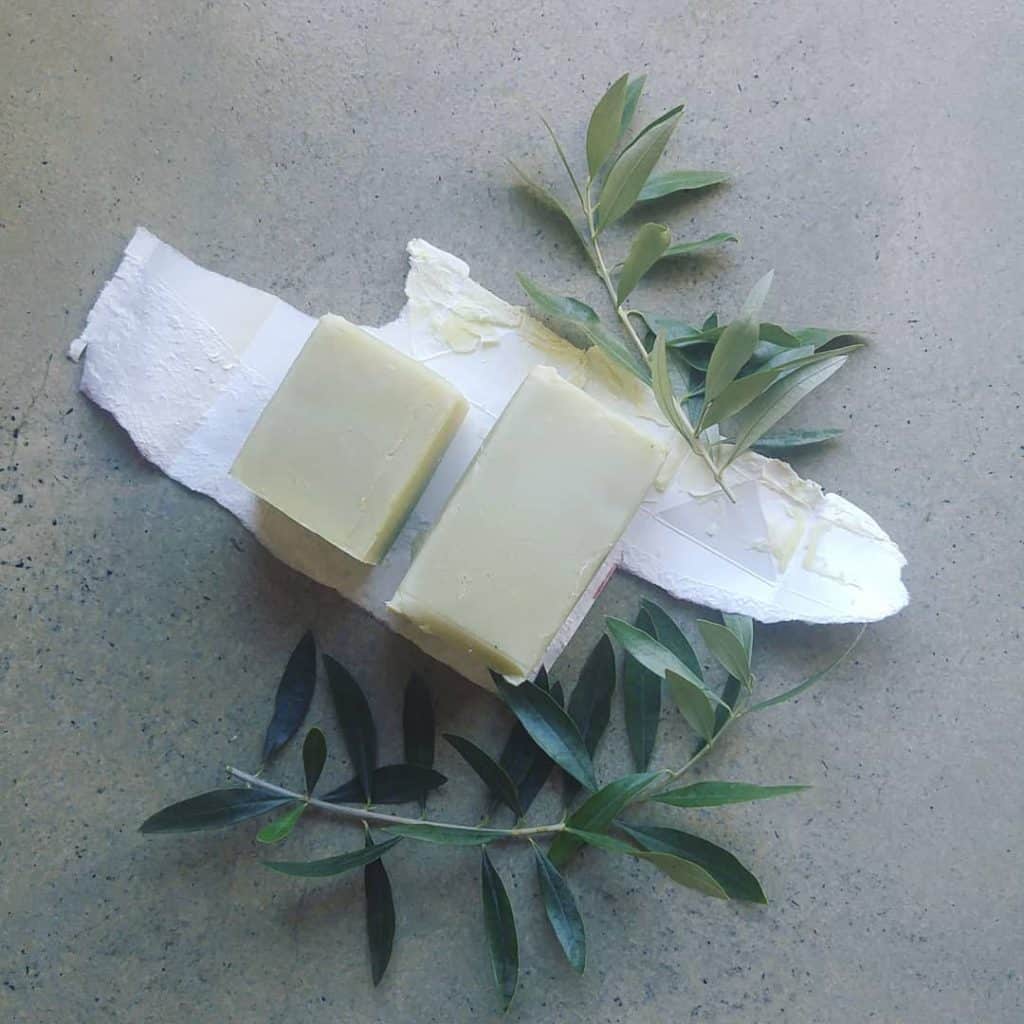
I’ve needed to make a batch for a while, but it takes a few weeks to cure (and harden – which makes it last longer) – and before the making happened, I ran out. So I asked my friend (who is a prolific soap maker) if she had any spare from her previous batch, and she did.
Three bars of soap, no need to go to the shop, no panic rushing around because everywhere was sold out.
Soon I’ll schedule myself a soap making weekend – and one batch will last me most of the year. (If you want some motivation to give it a go, good old-fashioned soap kills coronavirus. Here’s the science.)
DIY skincare
I make a few of my own products from scratch. I’m a big fan of simple, no fuss, easy recipes that require no specialist equipment and ideally use edible ingredients (meaning I can raid my pantry).
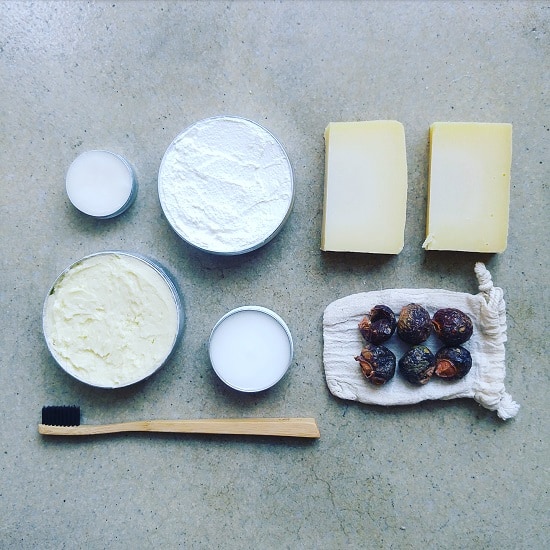
I don’t make everything from scratch all of the time. Recently I purchased some toothpaste because I just couldn’t bring myself to make it – even though it’s a two-minute job. (It’s just that there are always a hundred two-minute jobs that need doing, and this one never got higher up the list.)
But if toothpaste runs out at the store, I won’t panic – I’ll make my own.
I you’re interested, these are the things I make and recipes I use:
Alternative deodorant recipe (sodium bicarbonate/baking soda free)
Cold cream moisturiser (can also be used as eye make-up remover and cleanser)
DIY zinc cream (used as sunscreen)
I use a shampoo soap bar (which I buy) and a vinegar rinse to wash my hair; prior to this I used bicarb or rye flour in place of shampoo, and it worked well. I’d happily switch back if I couldn’t buy the soap.
If you’re curious, find out how washing your hair with bicarb and vinegar works.
(Oh, and I use white vinegar, which I buy, but I could easily switch to apple cider vinegar, which I make. It’s super easy and you just need apple cores, a bit of sugar and a jar. Link to DIY apple cider vinegar recipe here.)
Learning to cook
I think knowing how to cook is a really underrated skill. I’ve learned to cook over time (because nobody is born with this knowledge!), but going zero waste really next-levelled my cooking game, because I no longer wanted to buy those pre-packaged and convenience foods in plastic – and so I had to learn how to make my own, from scratch.
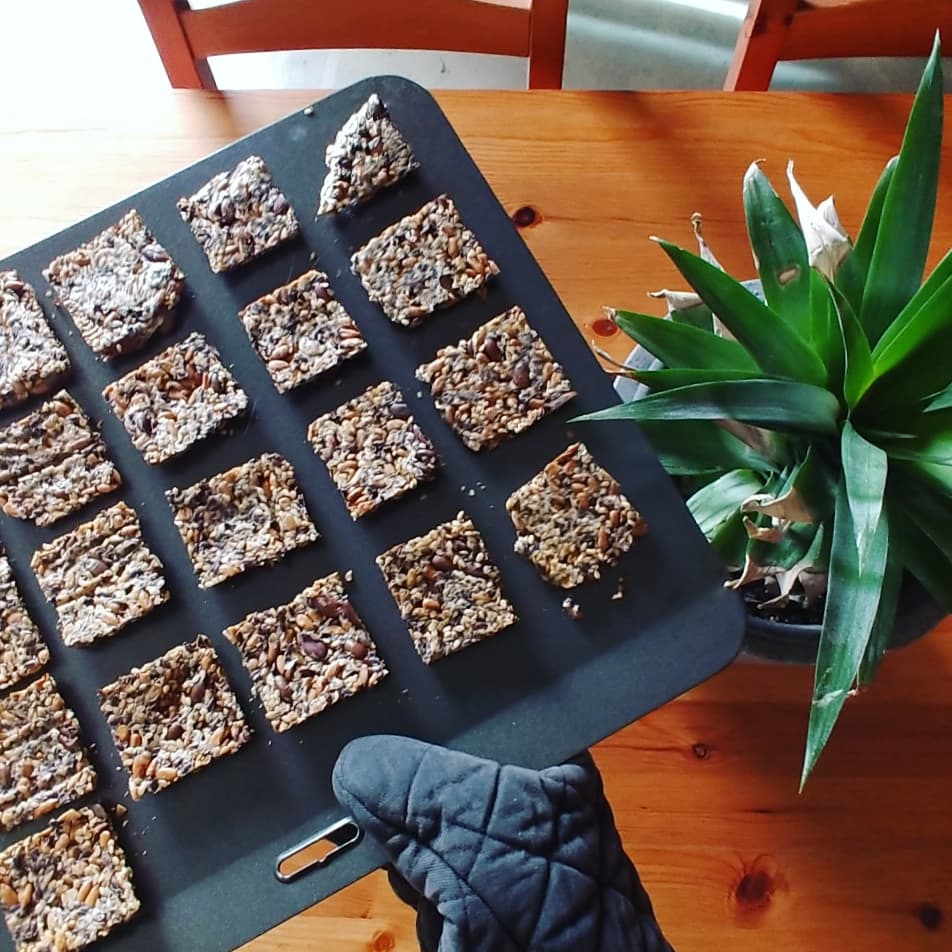
I don’t think I’d ever cooked a dry lentil or bean before starting out on this zero waste adventure. Turns out, if you can boil water, you can cook lentils. They are cheap, nutritious and delicious. They also expand up to three times when soaked and cooked (both economical and space-saving – a single packet of lentils takes up much less space in the pantry than the equivalent in cans).
Despite knowing how to cook most of the things, there are still days when dinner consists of toast (I’m not proud) or a bowl of pasta with lemon juice, lemon zest, capers, olive oil and parsley. But importantly, the skills to make things are there.
And there’s always more to learn. I’m keen to try making tofu and tempeh. I said that last year. (Oh, and the year before…) Slowly, slowly.
Learning to grow food
I’ve been growing some of my own food for 10+ years (not all of my own food, not even close!) although I had to relearn much of what I knew when I moved from the UK – where I started out – to Perth, which has a completely different climate.
From an allotment to a small balcony, to a bigger balcony, to community gardens and a community orchard, and now my own back yard, there have been lots of lessons.
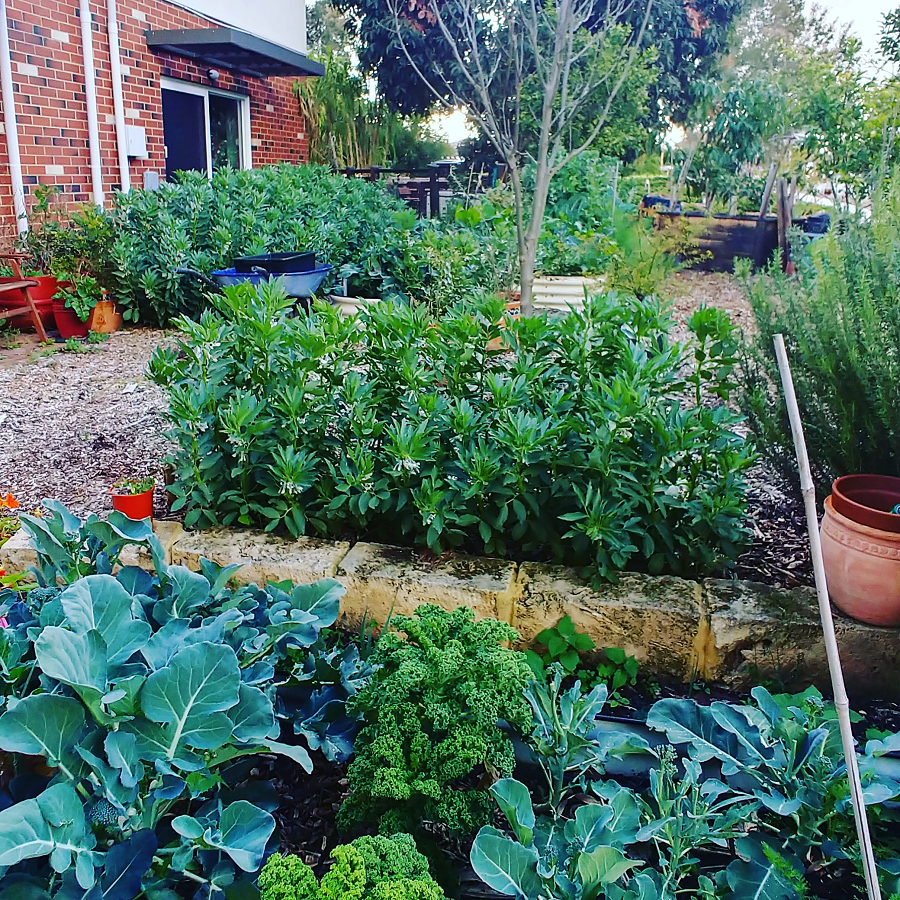
With the space to now grow fruit trees, I’m excited for the next stage.
But even in the days with the smallest balcony, there were a few herbs. Something alive and edible. Even without land of our own, it’s usually possible to grow something. Microgreens are another good place to start.
Learning to forage
Another useful aspect of growing food is learning to recognise plants, as there are a surprising number of edible plants and fruit trees on public land. Within walking distance of my place there’s an almond tree and a pecan tree (although good luck beating the birds to those), a fig tree, and several lilli pillies. There are also several overhanging fruit trees – lemons, macadamias and mangoes.
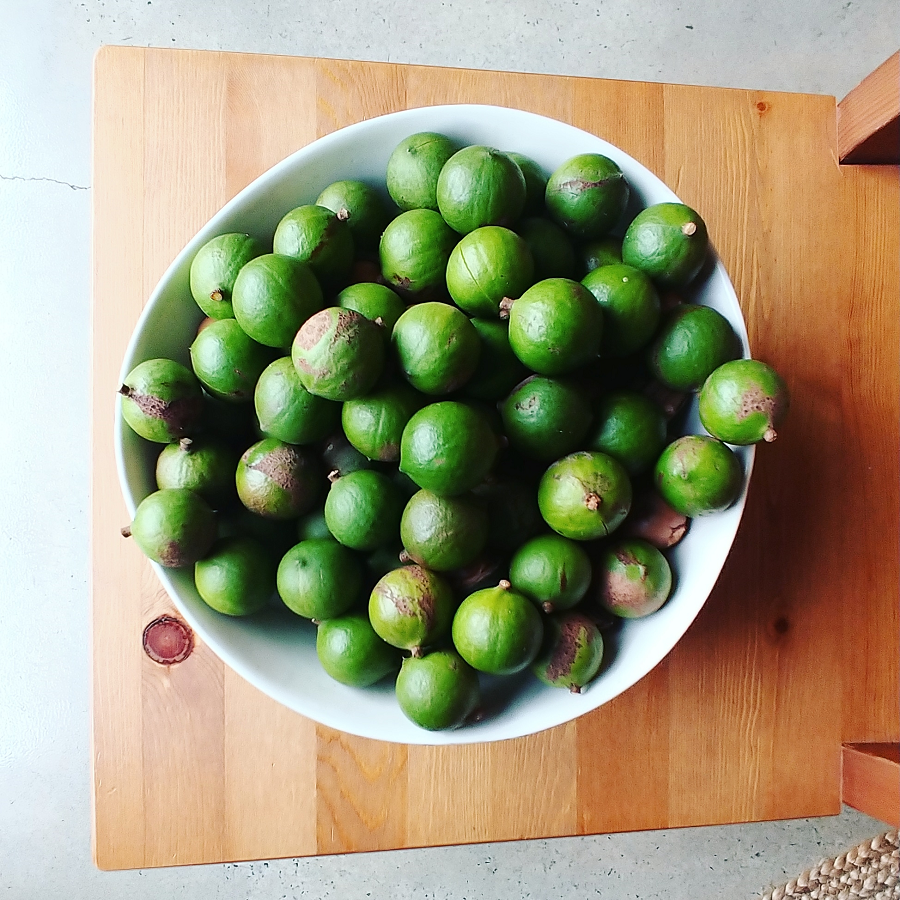
If there’s a black stain on the pavement, there will be a mulberry tree above your head.
(When I was in the UK, brambles – which grow blackberries – were in hedgerows everywhere. There were some apple trees in the square next to where I worked. And mushroom gathering is a growing pastime – one I sadly didn’t embrace before I left.)
Plus, wherever you are… a lot of edible weeds. Which is a whole other food source – and one that grows rather prolifically! Maybe this is a skill reserved for the zombie apocalypse… but you never know, and it’s good to be prepared ;)
Learning to preserve
I learned to preserve when I first got my allotment, because if you grow food you will grow more than you can eat. Things only last so long in the fridge, and there is only so much space in the freezer. Plus freezing vegetables doesn’t do much for them.
Preserving is a way of making things last much longer – often without the need to refrigerate (although some preserves are better refrigerated). Many preserves will last upwards of a year – right around until the next harvest.
I started out learning how to make jams, pickles and chutneys. When I moved to Australia I learned to ferment (sourdough, yoghurt, vegan cheese and vegetables), and more recently got started with dehydrating.
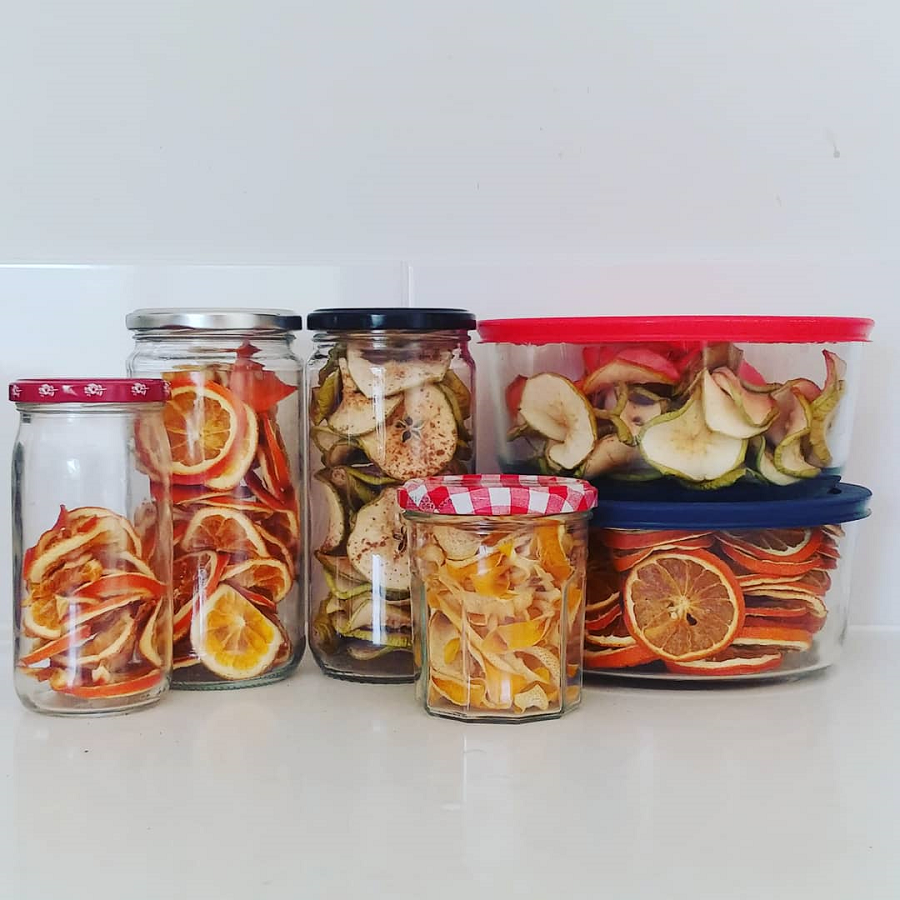
When my fruit trees are cranking (well my future fruit trees – I don’t have many yet) I plan to get into canning – which requires some specialist equipment.
Learning to mend
I can sew a button back on. I can darn holes in my socks. My mending knowledge is no way near extensive (in fact, I’ve pretty much shared my arsenal of expertise) but I’m keen how to learn more about how to mend. Making things last is an excellent skill to have.
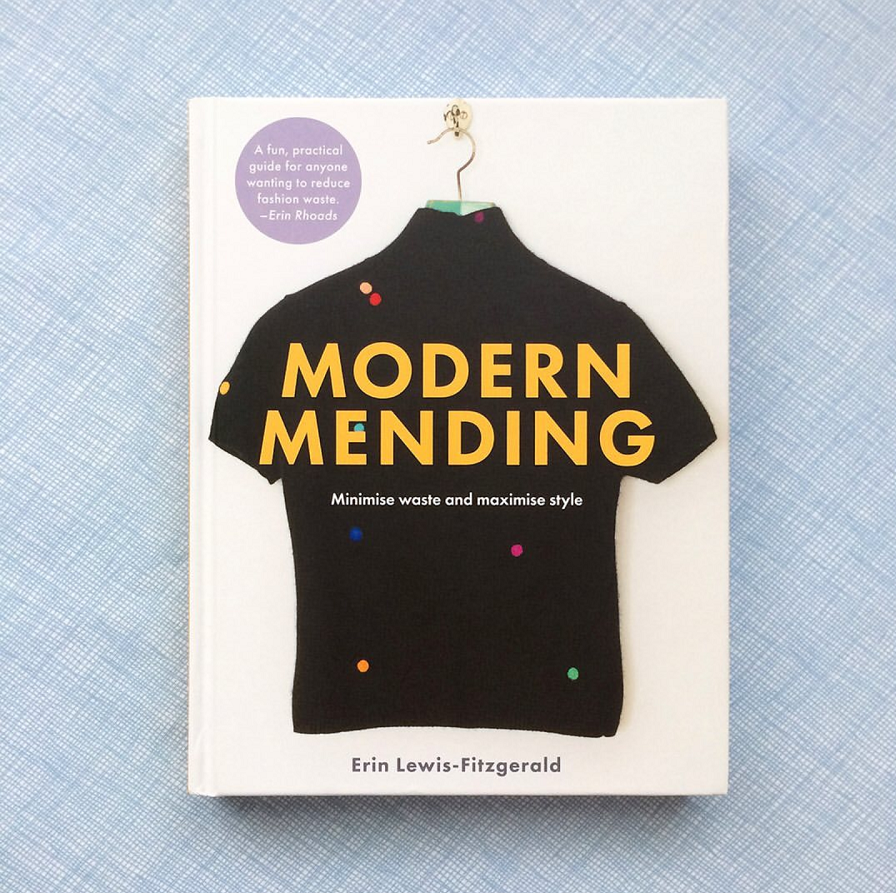
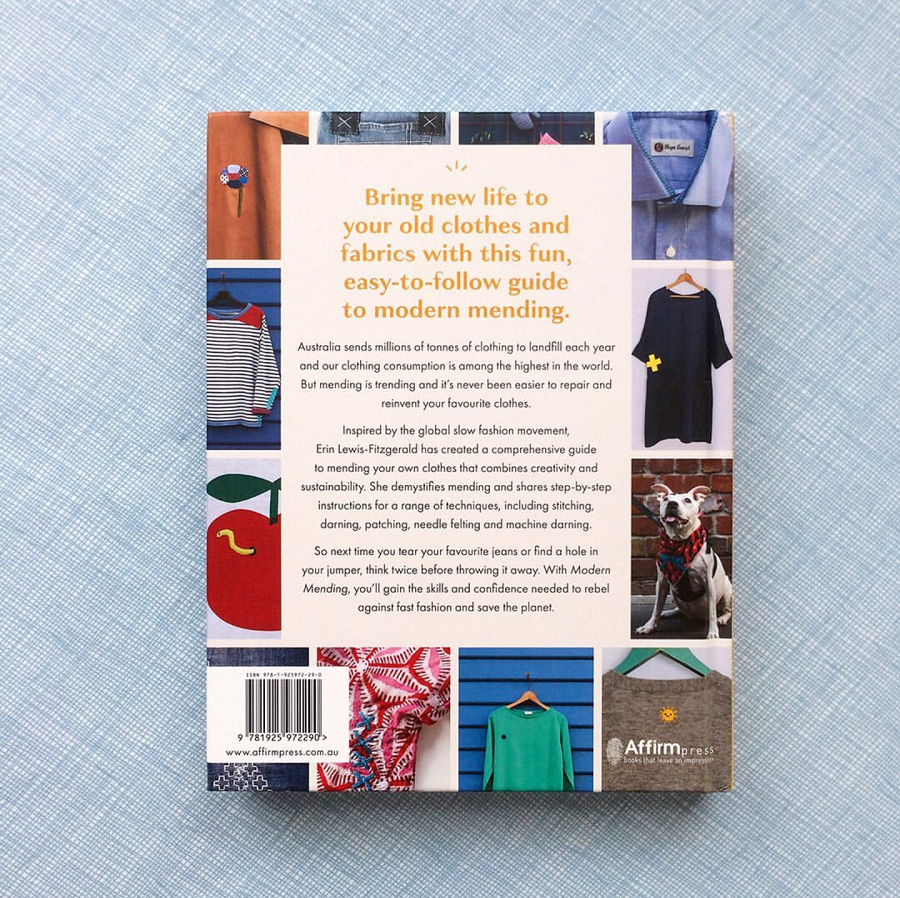
(My friend Erin, who is a marvellous mender, has just published her first book Modern Mending, pictured above. Reading and then trying out some of the techniques in this book is one of my goals for the year.)
Learning to share
I truly believe that this is the most important skill of all. Because setting yourself up for ‘self-sufficiency’ by keeping all your skills (and products of those skills) to yourself, and sitting back smugly whilst the world outside – and your neighbours – are struggling is a false victory indeed.
There’s some stuff I’m never going to make. No-one (or very few at least) has time to make all the things. Plus some stuff I find fun to make, other things I find useful to make, and yet more things I just don’t feel that need.
A week ago I gave my neighbour some eggs. A few day later there’s a knock on my door – she has made fresh pasta and has some for me! Pasta isn’t a thing I’d make, and chickens aren’t a thing she’d keep. Sharing skills (and the product of those skills) helped both of us.
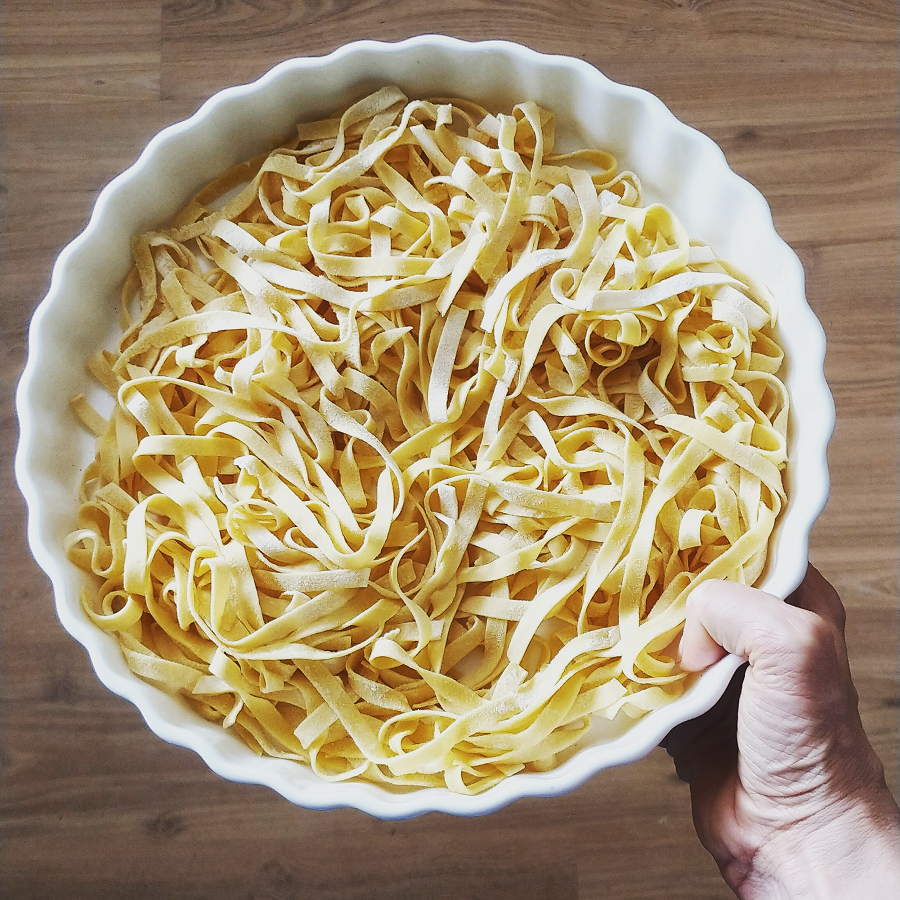
(Oh, and she also made pasta for her neighbours on the other side, and the ones next to them.)
Other friends make kimchi, have DIY skills, own tools, can mend, and the list goes on.
Sharing is a skill I definitely want to work on more. I have some incredible generous friends, and neighbours, who give freely – and who inspire me to do more. It’s something I really want to focus on this year.
You’d think sharing might encourage others to take advantage, but I find the opposite happens. Sharing breeds generosity.
I’m offering this up as a solution because it’s worked for me. It’s something practical (and positive) that we can do with our energy and time. If you’re feeling anxious about the way the world is going, or you’re wondering what to do as we’re advised to stay home more, perhaps learning a new skill is a way to put that nervous energy into something productive.
And sharing (be it knowledge, or physical stuff) is a way to help others benefit from what you’ve learned.
Now I’d love to hear from you! What skills do you have, and what skills do you want to learn? Have you been able to share your skills with family, friends, colleagues or your wider comunity? Do you have any other ideas for building resilience in our communities? Any other thoughts? Please share in the comments below!
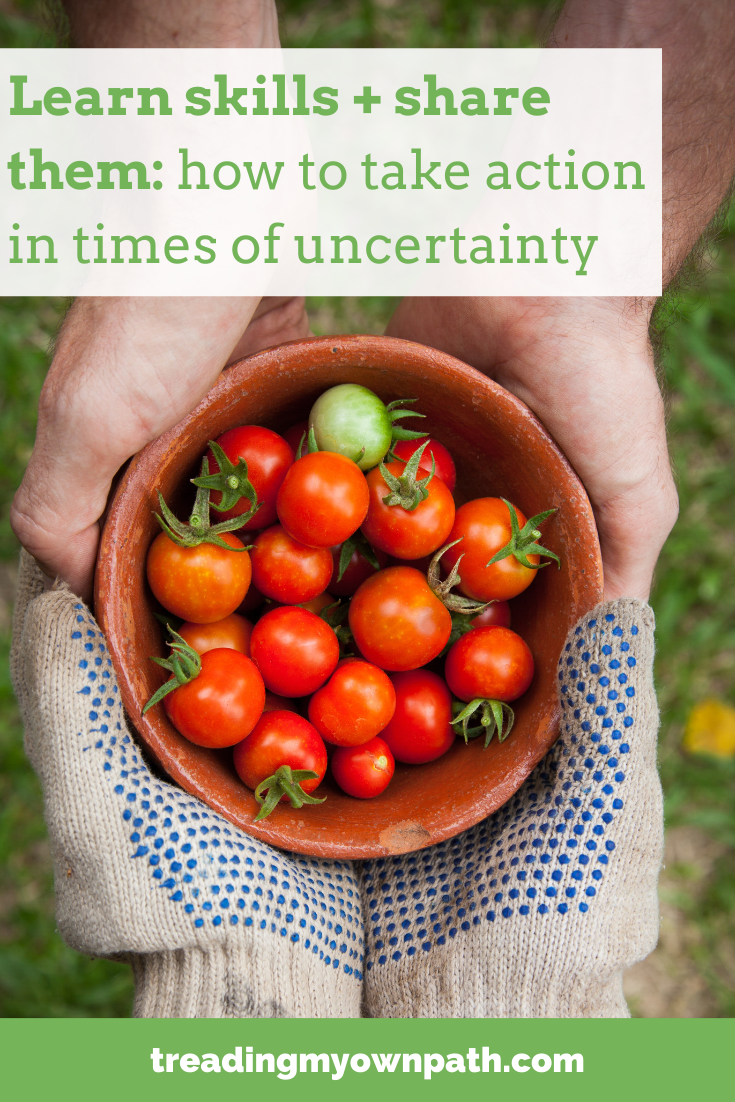


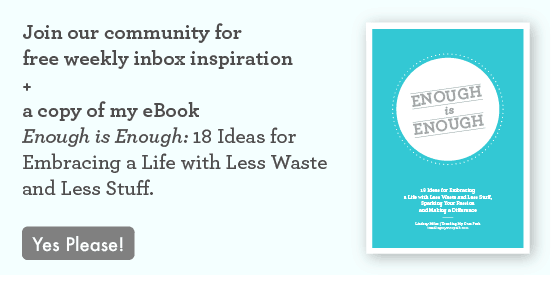




I recently made my own preserved lemons. (the salty sort of ones) Very easy and worthwhile economically. I have been home brewing kombucha for a bit over two years, do my own yogurt, protein balls and bread. Not so keen on my home made bread though. I need to work on the texture. I have made my own beeswax wraps and made extras which I give as gifts and put together some cutlery kits for gifts/swaps as well. I agree the next step for me too is to find some people to swap with.
This has actually been on my to-do list for over 10 years, Robyn! I remember going to the Organic Food Festival in Bristol (which would have been in 2010 or earlier) and seeing a demo, and thinking – woah, I need to try that! And now living here, where lemons grow on trees – and some trees fruit three times a year which almost makes for year round lemons – I still have not tried it! There is always something to try – or learn – and yes, someone to swap with. Shame I can’t swap you some lemons! ;)
Preserved lemons, that sounds so amazing! My lemon tree is still a baby but I have to try that when it produces more!
Not sure what the issue is with your bread’s texture, but are you sure you knead it long enough? Kneading it for a full ten minutes really helps to create a great texture (and arm muscles…).
After kneading for 10 mins, you let the dough prove for another half or full hour, knock it down and give it a quick knead again. The let it prove again for half an hour or so and bake it. hope this helps.
I really enjoy reading your blog. I lived in Perth for 4 years and am fascinated with your journey to create a garden. We grew everything in canvas bag/pots when we were there partly because we were renting but also because of the extremely poor “soil.”
If you should decide you want to learn to weave, the weaving guild https://spinweavewa.org/ will be a great resource for you. They have equipment to rent, classes and frequently can lead you towards a bargain if you want to purchase your own loom. They are a lovely bunch. Best of luck on your journey.
Hi Sarah and thank you! I find pots – except big wine barrel size wicking pots – to be tricky to grow things in in Perth unless they are watered often, meaning 2-3 times daily in the heat. Even raised beds aren’t great for our climate, particularly the metal ones, as they dry out so fast. But planting in the ground requires a LOT of amendments and knowing what you are doing. Not that I know what I’m doing exactly (!) but I know the basics. I had a few years to play around at the old place and I’ll hopefully have a few more here :)
That is a dangerous thing you did there, sharing that resource! I’ll have a look but not this week, I got deadlines and the garden is already enough of a distraction! Thanks so much for sharing.
sharing skills is wonderful, and it feels pretty wonderful to know you can do lots of things at home without recourse to shops and services should you need to. my husband just reported that the store shelves are pretty bare. i told him not to worry, as i can make nearly anything we could want or need except cat litter, the special cat food for our elderly kitty, and loo paper. as long as we have running water i can cope. or even without that: at my old home, we quite often lost power in storms; after hurricane damage, or a blizzard, it might be off for as long as 3+ weeks. i hauled and boiled water from a pond, cooked over the fireplace or a hibachi, and generally lived a la “little house on the prairie”. i didn’t enjoy it (love my hot baths), but we survived and continued to eat well and stay clean. i smiled when i read the reference to foraging above, because yesterday i did my first spring edible greens forage in my yard.
it feels good to know i can take care of my family and maybe even help others in need. the more skills we each have, the more resilient and safe our families and communities can be.
I loved this story, thanks so much for sharing! And your honesty, of course. I think ‘little house on the prairie’ would look lovely and wholesome from afar but be darn hard work in real life. Satisfying perhaps, but a slog! But as you say – eating well and staying clean (and dry – and ideally not sick) is a good base to have.
I love my dehydrater. Got a near-new one from gumtree a few years ago to make treats for my dog who has allergies and cant eat store-bought treats. Started with sliced pumpkin and apple (delicious! I ate more than he did!), now I mainly do Prime rolls. My dog loves them and I wonder how many plastic treat packets I have not needed to buy over the years. I look forward to hearing more about your dehydrating fun!
Hi Melanie, thanks for taking the time to comment! I borrowed a dehydrator first up, to see if I’d actually use it, and what I’d make. After a slow start I got a little bit obsessed ;) And then I had to give it back…
…and then I found the same model second-hand on Gumtree and couldn’t resist. Although I have to say that since I moved (October) I haven’t used it. Possibly because I know that when I do, I’d get addicted! At some point down the track I’m sure I will post about it :)
PS what are prime rolls?!
Prime rolls are just one brand of pet meat rolls in the fridge of pet shops. Roo and pumpkin dehydrates the best. Nothing wrong with getting addicted to it!